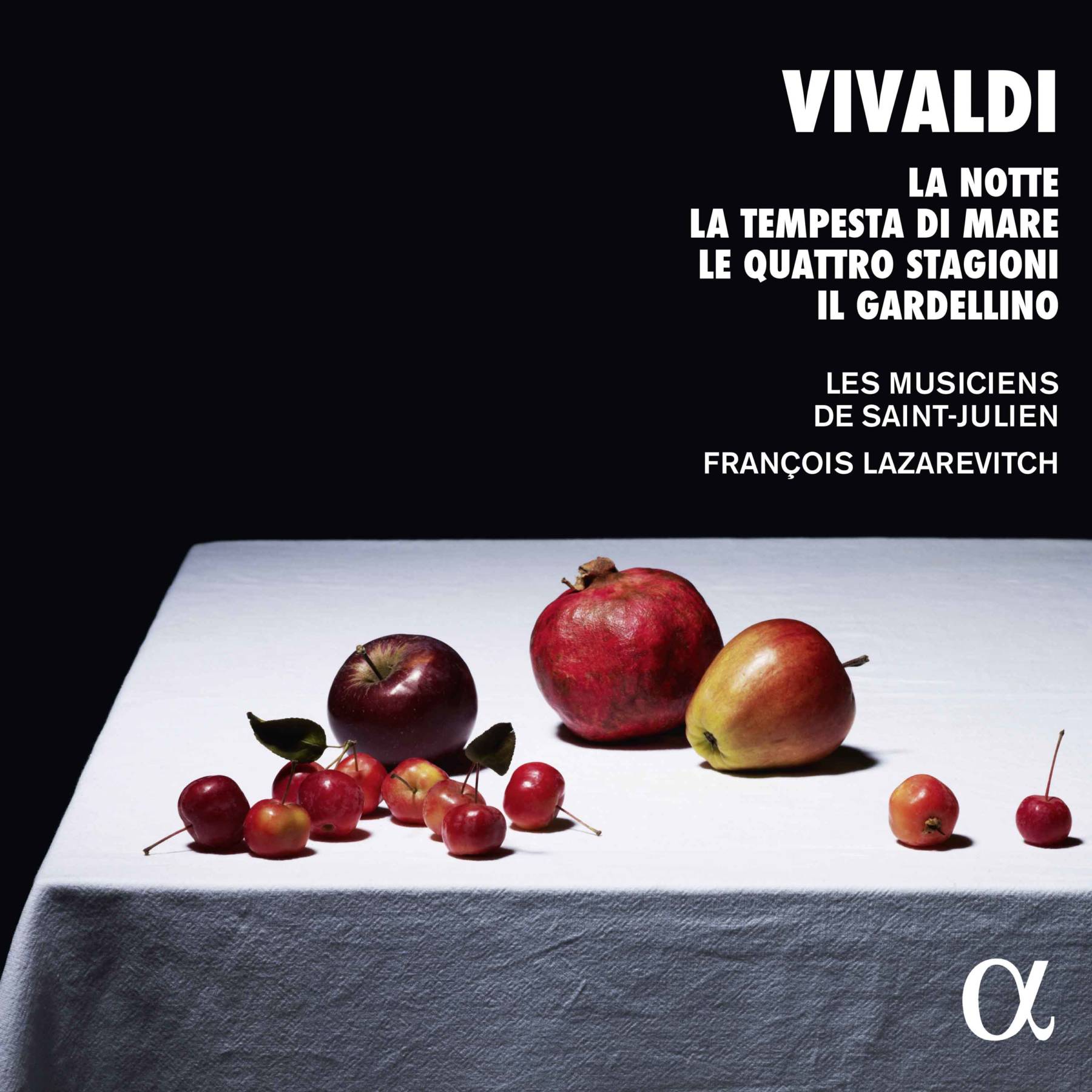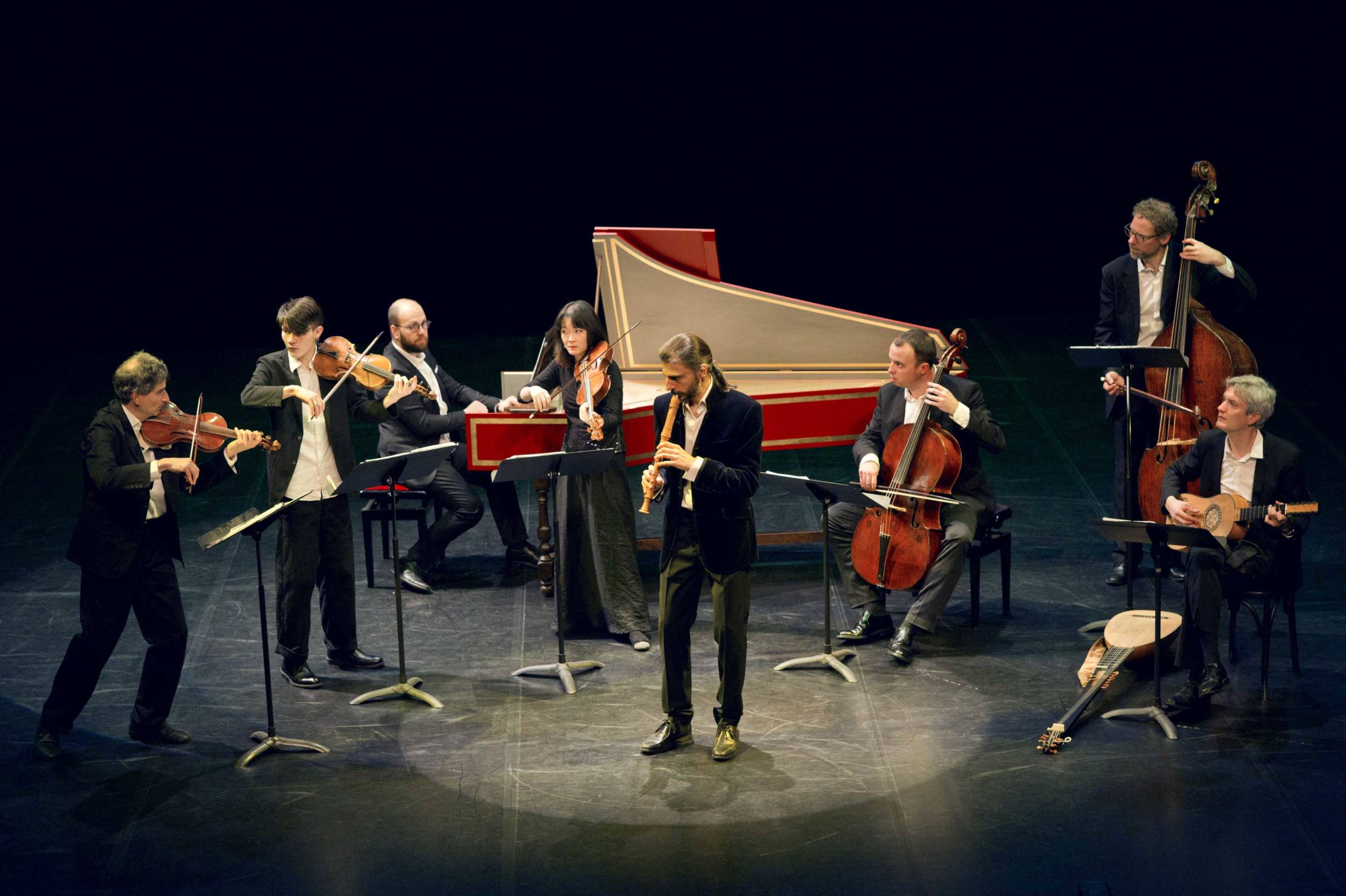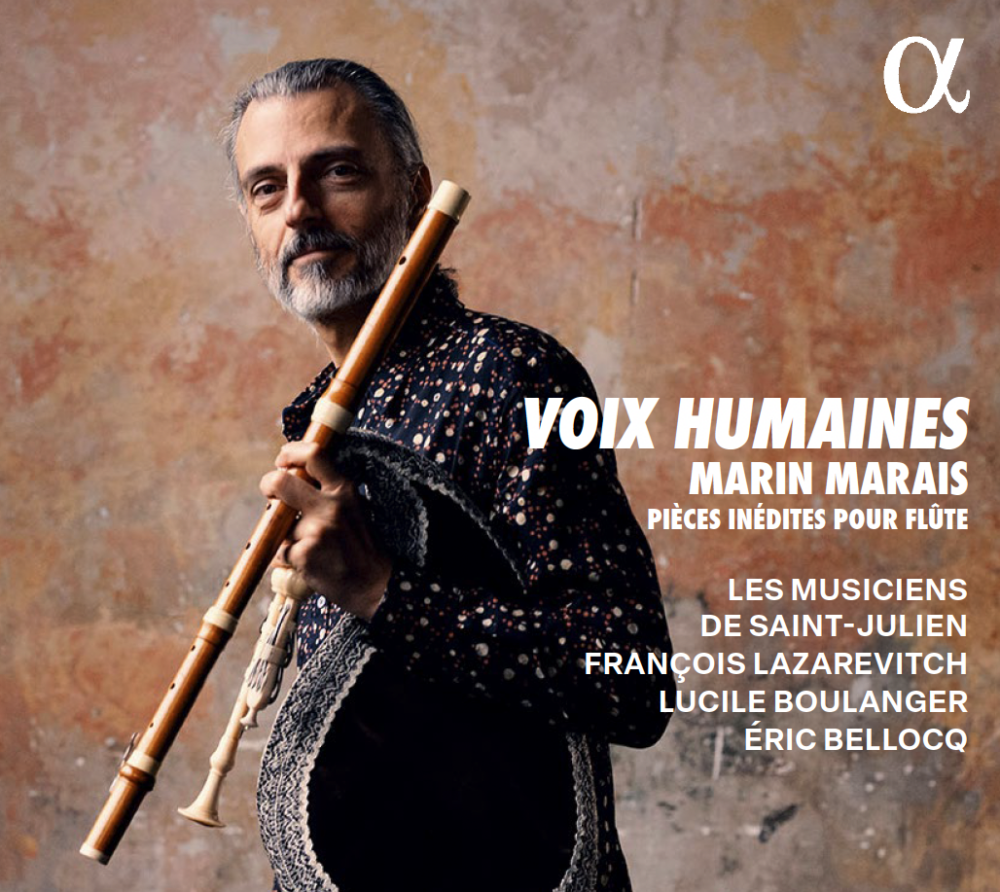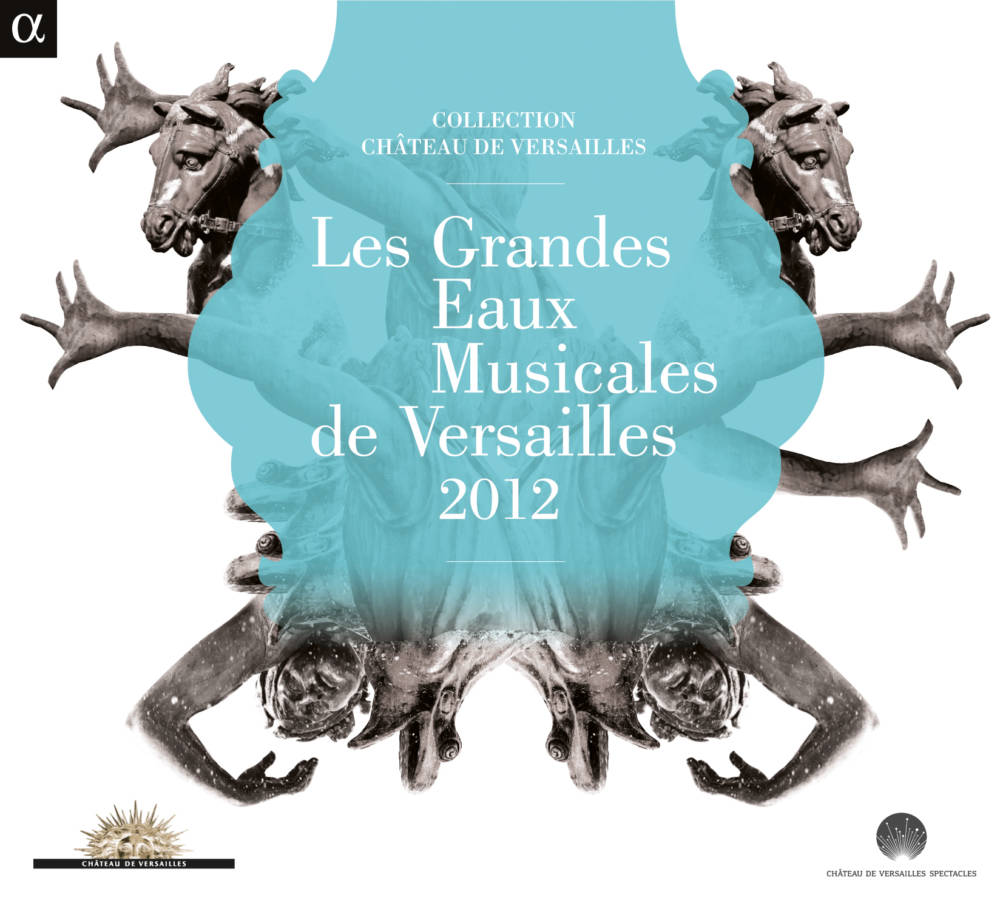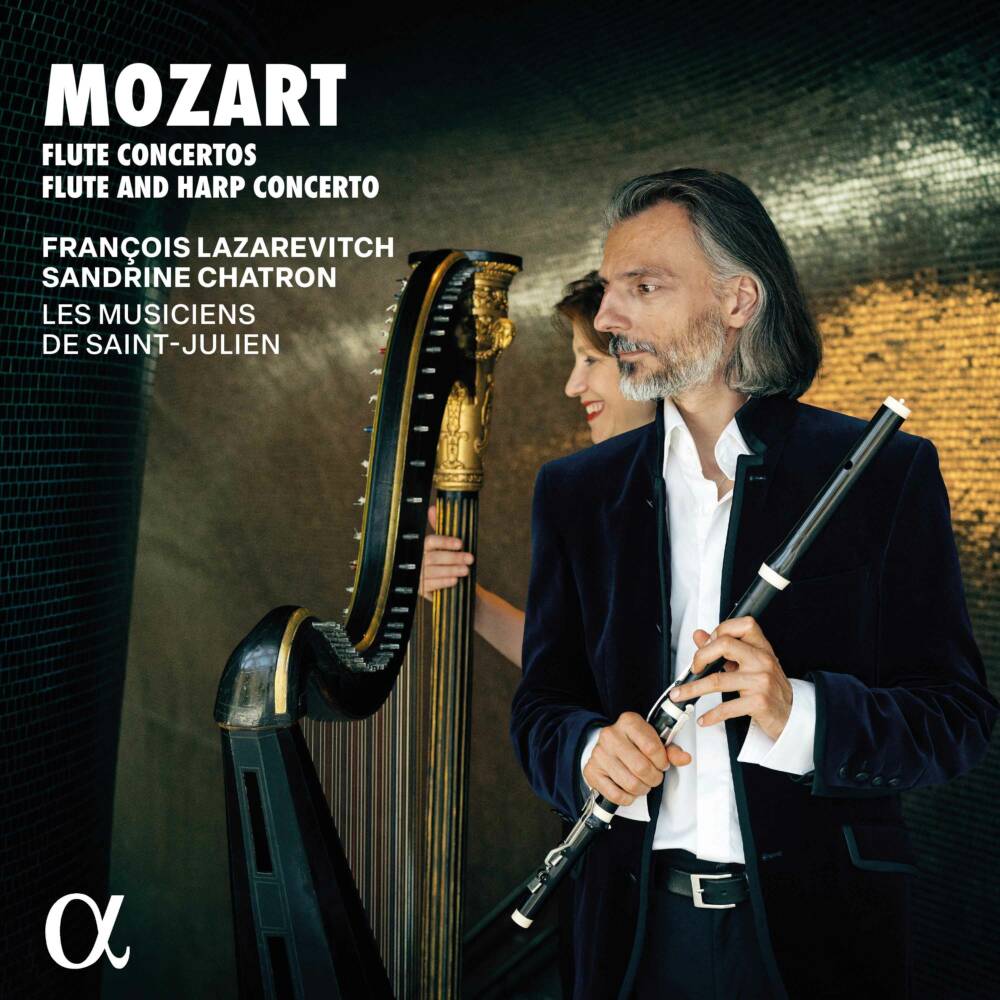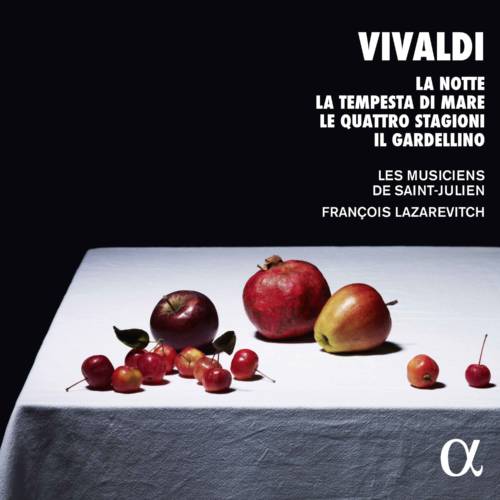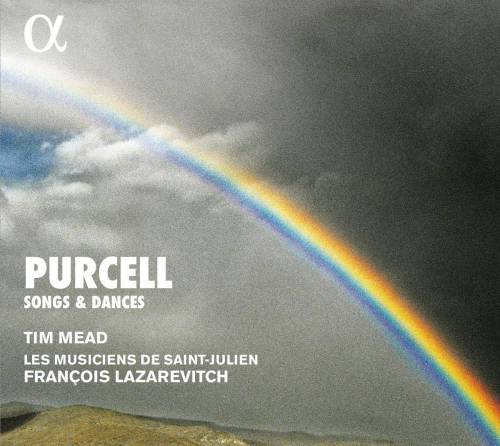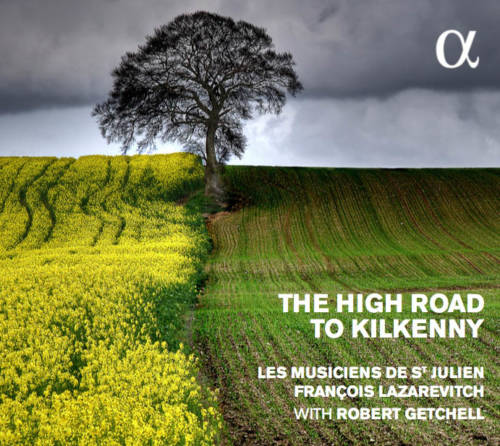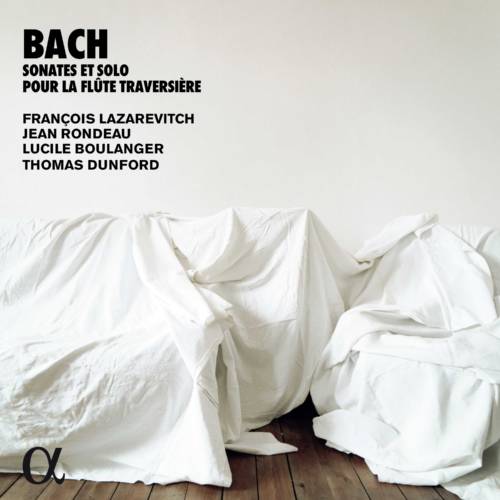Vivaldi, Le Quattro stagioni
Tracklisting
- Concerto in F Major ‘La Tempesta di Mare’ – I.Allegro (2:37)
- Concerto in F Major ‘La Tempesta di Mare’ – II.Largo (1:38)
- Concerto in F Major ‘La Tempesta di Mare’ – III.Presto (2:04)
- Concerto in D Major ‘Il Gardellino’ – I.Allegro (3:49)
- Concerto in D Major ‘Il Gardellino’ – II.Cantabile (3:11)
- Concerto in D Major ‘Il Gardellino’ – III.Allegro (2:57)
- Concerto in C Major ‘Le Quattro Stagioni – La Primavera’ – I.Allegro (3:23)
- Concerto in C Major ‘Le Quattro Stagioni – La Primavera’ – II.Adagio sempre piano (2:24)
- Concerto in C Major ‘Le Quattro Stagioni – La Primavera’ – III.Pastorello Allegro (3:39)
- Concerto in C Major ‘Le Quattro Stagioni – L’Estate’ – I.Allegro non molto (4:46)
- Concerto in C Major ‘Le Quattro Stagioni – L’Estate’ – II.Adagio (2:16)
- Concerto in C Major ‘Le Quattro Stagioni – L’Estate’ – III.Presto (3:01)
- Concerto in C Major ‘Le Quattro Stagioni – L’Autunno’ – I.Allegro (4:51)
- Concerto in C Major ‘Le Quattro Stagioni – L’Autunno’ – II.Largo (2:10)
- Concerto in C Major ‘Le Quattro Stagioni – L’Autunno’ – III.Allegro (3:09)
- Concerto in C Major ‘Le Quattro Stagioni – L’Inverno’ – I.Allegro non molto (3:18)
- Concerto in C Major ‘Le Quattro Stagioni – L’Inverno’ – II.Largo (1:58)
- Concerto in C Major ‘Le Quattro Stagioni – L’Inverno’ – III.Allegro (3:20)
- Concerto in G Minor ‘La Notte’ – I.Largo (1:49)
- Concerto in G Minor ‘La Notte’ – II.Presto (Fantasmi) (0:47)
- Concerto in G Minor ‘La Notte’ – III.Largo (1:06)
- Concerto in G Minor ‘La Notte’ – IV.Presto (0:57)
- Concerto in G Minor ‘La Notte’ – V.Largo (Il sonno) (1:16)
- Concerto in G Minor ‘La Notte’ – VI.Allegro (1:57)
Listen to the disc
About
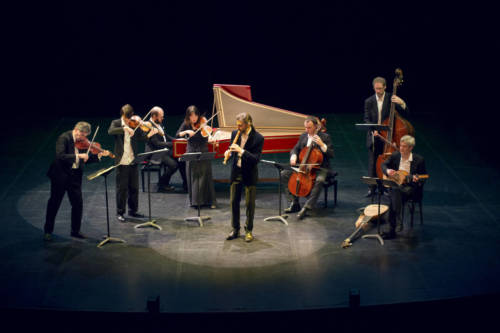
Programme
Vivaldi, Le Souffle des saisons
The originality and the spectacular alternation of the solo instruments – all played by François Lazarevitch – lead to the first metamorphosis of these atypical Four Seasons: in Spring the musette returns, required by the fanciful and nevertheless demanding version imagined by Chédeville in 1739, while The other three concertos, adapted from the originals for strings, are devoted to recorders and transverse flutes. These variations of timbres, their velocity and their inventiveness defy all the subtleties of the contrasting nature conceived by Vivaldi.
Distribution
François Lazarevitch : flute, musette & direction
David Greenberg, Reynier Gerrero : violins
Sophie Iwamura : viola
Nils de Dinechin : cello
André Henrich : theorbo
Pierre Gallon : harpsichord
Christian Staude : double bass
Partners
Coproduction Alpha classics. This CD was recorded with the support of the ADAMI and the Caisse des Dépôts.
Keine Frage: François Lazarevitch ist einer der führenden Barockflötisten unserer Zeit.
Kultur Radio – Bernard Schrammek
Médias
Press
september 2017
Crescendo Magazine
Dominique Lawalrée
New seasons?
With this new album, François Lazarevitch approaches Vivaldi accompanied by Les Musiciens de St Julien. We are therefore in excellent company for an adventure that combines the known and the new. Seven concerti dedicated to nature line it. Three of them come from the famous opus 10: La Tempesta di Mare, La Notte and Il Gardellino. The rhythmic vitality with which they are performed, however, avoids brutality. As always when Vivaldi’s music is interpreted accurately, a beneficial breath of freshness invades the listener’s ears. But nothing here prepares him for the shock of the four seasons. First of all there is “Le Printemps”, in an 18th century adaptation by Nicolas Chédeville, with wind instruments and the baroque musette (small bagpipes) as soloist in place of the violin. To taste it, you obviously have to ignore the original version that we all know so well. Because the shock is harsh: the whole thing is transposed into C major, instead of the usual E major. The color therefore changes, but, once the surprise is over, we get used to it and… we enjoy it. The sound of the bagpipes is even pleasant and accentuates the spring feel. After all, why not? Adaptations, when done well, at least have the advantage of making us rediscover certain works. As a result, François Lazarevitch, soon at Bozar, himself adapted the other three seasons, transforming the solo violin into a solo flute. He explains it in the liner notes. The least we can say is that his flute sounds natural and… enchants us! This is a sign that the adaptation is relevant and well carried out. His virtuoso performance is all the more appreciated, especially in the third movement of summer (the storm), the first of autumn and the whole of winter. This CD is therefore not only recommended for all Vivaldi lovers, but also for the curious and all those who want to hear good music.
Son 10 – Livret 10 – Répertoire 10 – Interprétation 10
august 2017
Kultur Radio
Bernard Schrammek
Federnde, mitreißende und hochtransparente Interpretation
Man möchte eigentlich meinen, dass es auf dem CD-Markt bereits ausreichend Einspielungen der “Vier Jahreszeiten” von Antonio Vivaldi gäbe. Doch die Neuaufnahme des Evergreens mit dem französischen Ensemble Les Musiciens de Saint-Julien unter Leitung des Flötisten François Lazarevitch lässt gewaltig aufhorchen.
Aus den Violinkonzerten hat er kurzerhand Konzerte für Traversflöte gemacht. Zwar muss er dabei auf manchen Doppelgriff und einige weitere typische geigerische Figuren verzichten, dafür gewinnt er aber den warmen, einfühlsamen und differenzierten Klang der Flöte. Das nimmt man besonders gern in den langsamen Sätzen (etwa dem “Kaminfeuer” des “Winter”-Konzerts) wahr, aber auch die schnellen Rahmensätze voll Virtuosität und Feuer entbehren nicht einer großen Faszination.
Keine Frage: François Lazarevitch ist einer der führenden Barockflötisten unserer Zeit. Das beweist er nicht zuletzt im berühmten “Frühling” der “Vier Jahreszeiten”: Hier bietet Lazarevitch eine Version für Musette – also für einen kleinen, barocken Dudelsack – und Orchester, die schon im 18. Jahrhundert vom französischen Komponisten Nicolas Chédeville erstellt wurde.
Das überaus populäre Barockstück erklingt durch das ungewohnte Soloinstrument zwar an der Grenze zur Karrikatur, aber dennoch zweifelt man keinen Augenblick an der Seriosität der Aufnahme. Großen Anteil an der Originalität der Neuaufnahme besitzen die Musiciens de Saint-Julien, die in solistischer Besetzung für eine federnde, mitreißende und hochtransparente Interpretation sorgen.
Ergänzt wird diese neue “Jahreszeiten-Version” durch drei weitere Programmkonzerte Vivaldis, die allerdings original für Block- bzw. Traversflöte vorgesehen sind. Schön, dass sich die Musiciens de Saint-Julien entschlossen haben, diese Dauerbrenner der Barockmusik völlig neu einzuspielen.
